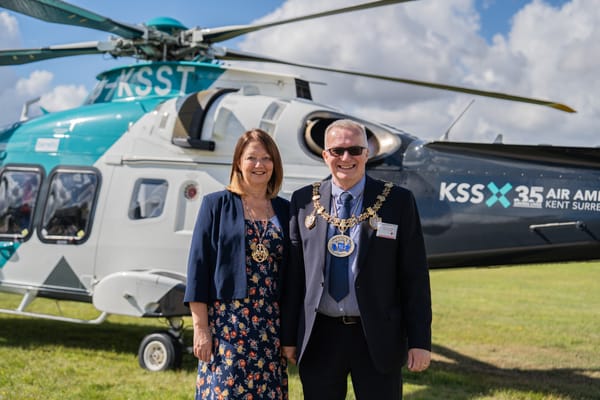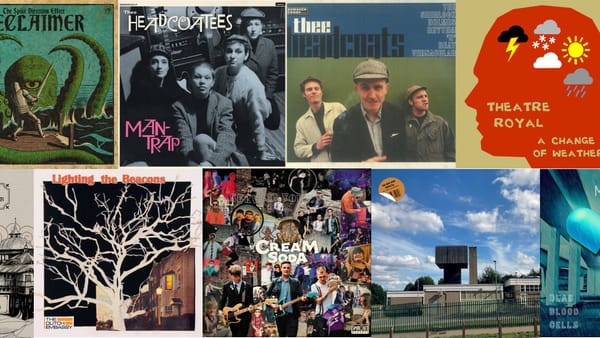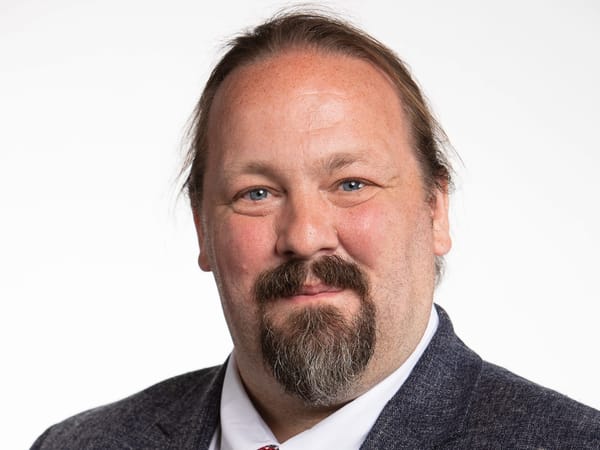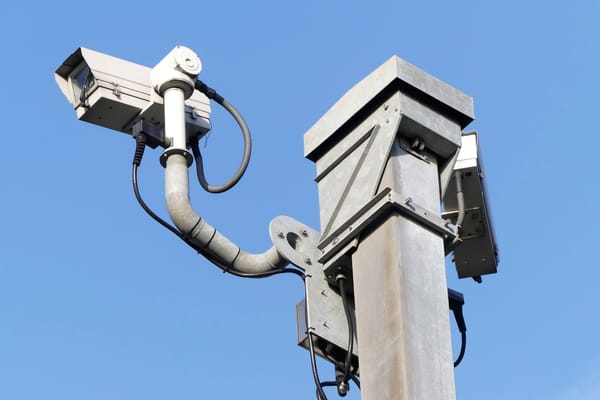"You're not free if you can't speak your mind"
What Steven asked Daniel Dabin, Rizvi Rawoof, and Thomas Mallon, Reform's General Election candidates for Medway
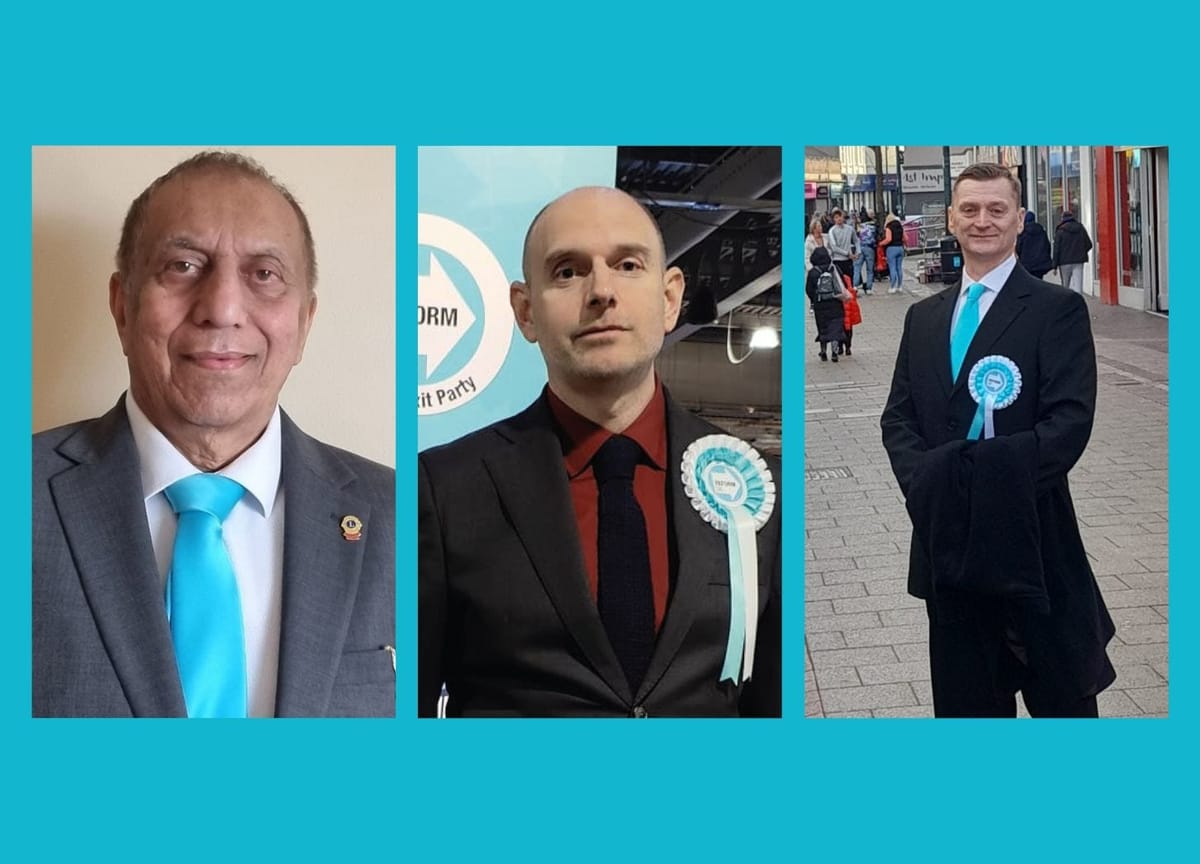
With the General Election imminent, this is the first in a series of sit-down interviews with General Election candidates from the smaller parties standing, Steven met all three Reform candidates for Medway’s constituencies: Daniel Dabin for Rochester and Strood, Rizvi Rawoof for Gillingham and Rainham, and Thomas Mallon for Chatham and Aylesford.
Editor’s note: For scheduling reasons, Daniel Dabin's conversation took place at a different time from Rizvi Rawoof and Thomas Mallon's. For purposes of clarity and concision, the interviews are presented here together. In the coming weeks, we’ll have similar pieces with the Liberal Democrats and, hopefully, other smaller parties contesting the election.
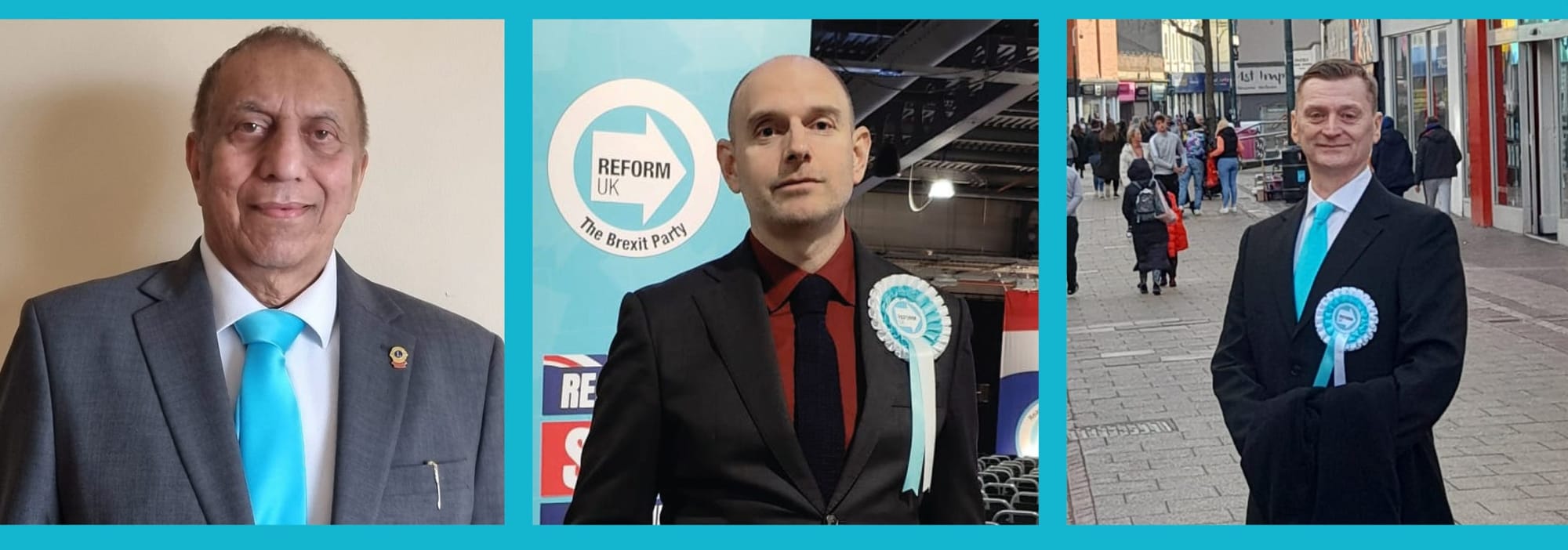
Where were you born?
Thomas Mallon: Glasgow.
Rizvi Rawoff: I was born in Colombo, Sri Lanka.
Daniel Dabin: Bromley.
What brought you to the Medway towns?
TM: I was in the construction industry. I was working on Bluewater when Bluewater was under construction. When Bluewater was wrapping up, I ended up getting a contract for Darent Valley Hospital. And then, after that was wrapping up, I got another contract working at Glaxo Wellcome. I've kind of stayed in the area.
RR: Well, I came years ago to educate my son, and my wife came here as a highly skilled migrant on a visa. She is in medical provision.
DD: Erm, that's a good question. I moved out to Bromley, went more rural south, and moved back here due to commuting. Good commuter links, affordable housing, well it was at the time, and Strood is a nice little town.
What jobs did your parents do?
TM: My dad was a telecommunications engineer. He was working away from home a lot. He could be anywhere. He had quite a busy occupation. My mother had quite a few jobs but mostly looked after the kids.
RR: My dad was a pharmacist, and my mum was a housewife.
DD: Working class I suppose you could call them. My mum worked at the council and my father worked for British Rail.
How did you find school?
TM: School was quite good. I went to a very good school in the Glasgow's West End, from primary school right up to secondary education. I had quite a good background in education. Scottish education at the time was in its golden era, not anywhere near where it is now.
RR: My school was in Sri Lanka. I went to a Christian school. That school was created by one of the students from Eton. It's a very high standard primary school, then I went to another different secondary school.
DD: When I was there, very good (laughs).
Was attendance an issue?
DD: Yeah, it wasn’t a great school, but it was what it was. I learned what I needed to learn. I feel like I’ve done well since then.
What did you study at university?
RR: I did business management at university in Sri Lanka, 30-40 years ago.
DD: I didn't do higher education.
TM: I've got a degree in political modern studies.
Did you go back to university at a later stage?
TM: No, I didn't. I got that in secondary school. We were studying, at the time, the EU and effects of the EU on the British as a nation.
And you came away from that thinking this is not a good thing?
TM: It taught us a lot about how countries can be independent and have friendships with other nations and contracts and treaties rather than being tied down and bogged down by red tape and bureaucracy.
What was your first full-time job?
TM: Working in kitchens. The hours didn't suit my lifestyle at the time, to be honest. I was an 18-year-old kid, doing split shifts finishing at 11 o'clock, 12 o'clock on a Friday, Saturday night when all my friends are out having fun. I ended up taking a different path and that's when I became a lab technician.
RR: My first job was in a tea export company in Sri Lanka, and after university, I joined an audit firm whilst also training in accountancy and, thereafter, in a shipping firm. I was working in Saudi Arabia, I was working in Greece, all in shipping, and also in the UK.
DD: I've always been working from a young age. My brother's an electrician so I've always been helping him. I started working, helping him on and off, from the age of 10, carrying materials back and forth. As soon as I left school, I went straight into helping him build up his business. I can't remember a time when I've not worked.
What is your official occupation now?
TM: I am a warehouse manager. I'm a jack of all trades. I can actually turn my hand to anything.
RR: I'm in financial management and I have my own company exporting optical equipment, instruments and consumables from UK to Africa and to Europe.
DD: I run a small financial services company, an IFA (independent financial advisor) business, portfolio management, financial advice.
What additional roles or responsibilities have you had?
TM: My wife is actually registered disabled. She recently had an accident, so I've been looking after her as a full-time carer.
RR: I am a member of the Lions Club International, and I just stood as the District Governor. They do services for the less fortunate, giving glasses, cataract operations, and for the homeless, giving blankets, and various things.
DD: I was an army reservist, which means you still do some deployments as and when you can do them, but they tend to be shorter, so you're infill for the regular army. I was light infantry, seven years, with Princess of Wales Royal Regiment, based in Rochester, just down the road. I joined when I was about 40. I got to a stage in my life where I now felt I had enough time to do reservist work, and I was financially secure enough that I could afford to go to the army from time to time. I would have been more useful to you if I'd done it 20 years previously.
I have also done humanitarian work in Africa. In Ghana, a friend I met in the army, runs a small orphanage, providing food and training for when they're ready to leave, going to local villages, meeting the chiefs. We used to travel around, just basically bringing things we could help out of our own pocket. I have a coffee machine waiting to ship out. We've actually done it under the UN as well, the UN group turned saw what we were doing because we were doing it ourselves, we funded ourselves, they asked us to come under their banner. Some places we go to are quite dangerous, so they offered some support in terms of vehicles.
Where do you like to go for dinner in Medway?
TM: The Command House is quite nice, and we've been to the Honourable Pilot a few times.
RR: I can’t remember the name of the restaurant, but we go out once every two weeks for dinner somewhere. If it's restaurants, we mainly go to Bluewater.
DD: I'm more for getting deliveries. Will’s fish and chip shop1, I like their food a lot actually.
What political parties have you been a member of?
TM: I've never actually joined as a member of any party. This is the first time I think I need to stand up and take action. I joined the Reform Party over a year ago.
DD: I've never been a member of any other party.
RR: I have been a member of the Conservatives.
What led you to leaving in the Conservative Party?
RR: I’m very unhappy because of the way things are going now. The recession and so many things. Unemployment, NHS delays, so many issues. I got fed up.
Is Reform UK a political party?
DD: Yes. Are you talking about its status as a company? Do you know why it's a company?
I have an idea but for the readers, could you explain?
DD: There was an election coming up, and it was for speed, and that was the most efficient way of doing it at the time. There's no reason to maintain it as a company as far as I'm aware. We don't have any plans to change it at the moment because there's no reason to do it. It actually gives us a disadvantage in terms of taking donations because there's tax implications for the people who donate if you're making very substantial donations. We're a grassroots party. We're literally a people's party, so our donations are predominantly small in nature anyway, so that's not a problem. If we were one of the two big parties, they're getting billionaire donors making large donations.
Why did you join Reform?
RR: I thought Reform can make a change to everything.
DD: I'm going to be honest with you. I don't like politics at all. Like most of the British people, I feel that we just want to be left alone to get on with our lives. We just expect a certain level of government to basically run the country and the local area to a reasonable level. The reason I've stepped into politics is basically because of lack of representation. I had a business in Gravesend on the High Street and watching the devastation of the other businesses around my business being closed down and people being completely financially wiped out because footfall disappeared because Labour council and Tory government. My wife said, ‘Stop complaining about it, you need to do something about it.’ I was British army at the time. I left about three weeks ago. I'd done that purely to be of service to my country. My wife said, ‘Your service to your country needs to be in a different area.’
How do you make the mental leap to go from, I don't want to be involved in politics, to I will run for parliament?
DD: The biggest issue with parliament is it does not represent the British people at all. You need someone who's got life experience. I've been in the armed services. I’ve worked with lots of small businesses, advising companies, and just dealing with the public. I've got a good overview of different areas. I think it puts me in a good position to basically go and represent what people actually want. In terms of experience, I don't have any experience that the Labour and Conservative Party have, but my honest, good opinion is I do not want any of their experience. Their experience is a failure. It's a betrayal. It's all nice slogans and no action. Quite frankly, I can't stomach that. There'll be no difference between this Labour MP and the current Tory MP in terms of direction.

